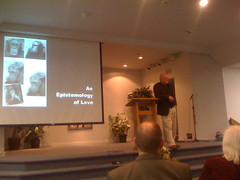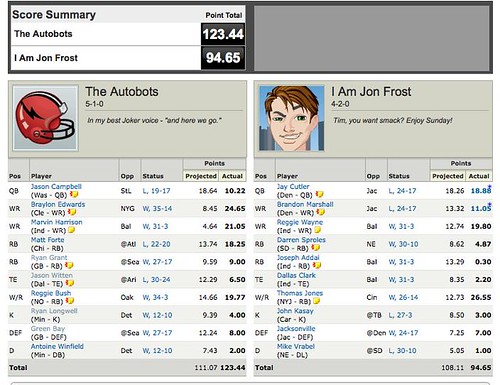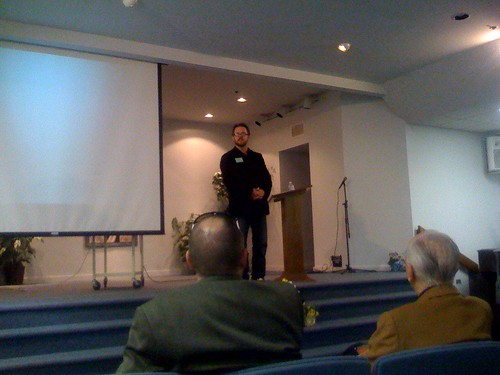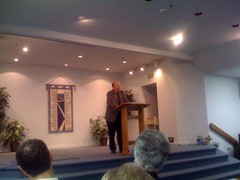Highlight of the Week – Taking Nathan pumpkin picking. He didn’t like it but we did.
Also enjoyed being at the EDA Conference with fellow pastors, old friends like Eric Couch. Enjoyed listening to Dave Kinnaman, Mike Harder.
Looking Forward To – The Emergent Conference “Reclaiming Paul” in Kansas City. I really can’t wait for this.
What Broke My Heart – Reading this NY Times article, “Rape Victims’ Words Help Jolt Congo into Change” about the Congo’s Terrible Rape Problem.
What I Am Reading – The Historical Books – Richard D. Nelson (for class). Almost finished with “Reading Paul”.
What I Thought Was uhh… Interesting – The Washington Post didn’t show any respect to W (link here). But Christianty gave it 3.5 stars! My initial reaction is to think CT is trying too hard.
What I Am Listening to – Fermi Project Podcast 23 – with Andrew Crouch, Episode 20 with Brian McLaren, and Episode 19 with Shane Hipps. Appreciate the Fermi Project.
 As a youth pastor who loves his calling on most days, I was so pleased that our District had
As a youth pastor who loves his calling on most days, I was so pleased that our District had 


 I’m at the “Missional Christianity … Church Beyond Boundaries” Conference at Biblical Seminary. It will conclude with John Franke being installed as the Lester and Kay Clemens Professorship in Missional Theology. (Since my friends and have referred to it as the Franke installation, and they’re here and generally the only ones who read this blog, I’ll probably refer to it as the Franke Installation. If you are reading this and do not fall into the sentence, you are now not confused, right?)
I’m at the “Missional Christianity … Church Beyond Boundaries” Conference at Biblical Seminary. It will conclude with John Franke being installed as the Lester and Kay Clemens Professorship in Missional Theology. (Since my friends and have referred to it as the Franke installation, and they’re here and generally the only ones who read this blog, I’ll probably refer to it as the Franke Installation. If you are reading this and do not fall into the sentence, you are now not confused, right?) On Sunday we worshipped at the Well in Feasterville (again with Evan’s group).
On Sunday we worshipped at the Well in Feasterville (again with Evan’s group).




Recent Comments